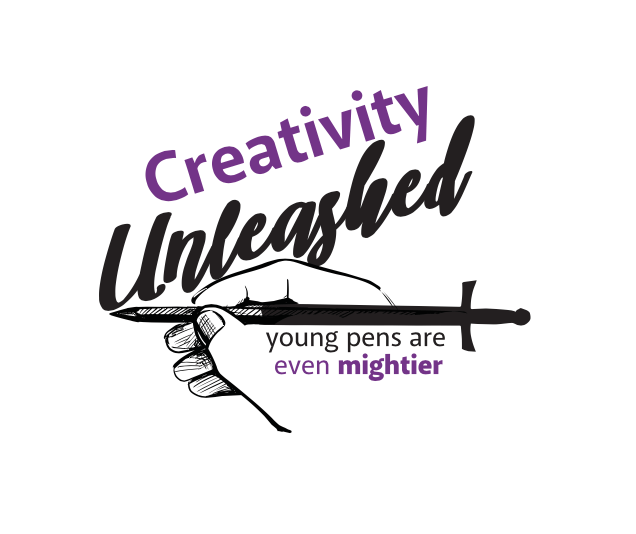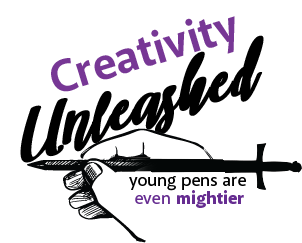Humanitarian Assistance
“The day clothes should make you look like a family on vacation. A pack of waterproof overalls are to be worn
under them. Keep your passport with you. Find the cab with the passenger side door’s window a quarter of the way rolled down, or look for the ashtray on the dashboard. Once someone finds the first car, the rest of you will pile in over the course of about fifteen minutes. Leave the hotel one by one once it’s dark. The cab drivers know where to go.”
***
There’s a sharp, distinctive smell of sanitizer in a room where its whitewashed walls are empty. There isn't a single colour in the room except for the bright blue wristband they tied around my right wrist. It digs into my skin and leaves a big, red bruise there.
There’s a nurse assigned to me, whom I can’t remember the name of even though I see her everyday.
“Here’s some water. Here are your medications. Don’t chew the pills; they taste bitter. Here’s your lunch. Stop scratching the scab on your wrist; it won’t heal properly that way. The weather is nice today. Do you want to take a walk? I’ll see you tomorrow. It was good seeing you today, Emilia. You look much more lively than yesterday, you know.” She has this entire conversation by herself.
I never say anything back to her, you see, but not because I don’t want to. Sometimes it feels like my tongue is glued to the roof of my mouth.
A pair of hands rest on my lap.
Look in the mirror. Who do you see?
I smile, and watch the woman in the mirror smile back. The edges of her empty eyes wrinkle when she does so, and there are dimples in her hollow cheeks. She has thinning blonde hair, sharp features that make her look ghost-like at night, and a habit of sitting in bed and staring at the black TV screen as if in a trance. Someone has really blessed her with some god-given qualities.
This woman spent time living out of a hidden camp in the woods, fishing dead bodies out of swamps, offering band-aids to carefully place over dog bites that will become infected and kill viciously, and know that with every passing day, there is nothing she can do to prevent this hell from unfolding.
She applies a layer of clear moisturizer to her cracked lips, and can taste the metallic tang from those cuts mingling with the glossy flavourlessness.
I get up carefully, smoothing out the wrinkles of my dress and taking another glance at my reflection. Then I gingerly push the key into the keyhole of the tallest window in the hospital room. The window pushes open easily. One foot balances on the arm of a peeling recliner and the other dangles in the air. With hands gripping the edge of the window frame, I push myself out of the hospital room and onto the tiny ridge of the window pane. I steady myself, then release my hands. I teeter on my heels, just long enough to dig my finger under the blue wristband and tear the flimsy paper. I watch it float down to the ground ten stories below into a yellowing bush on the edge of the narrow, uneven sidewalk. Then I close my eyes, and step off the ridge. I can’t tell the difference between falling and flying now.
Earlier that day, the nurse had mentioned to her friend that she’d lost one of her keys. She just wasn’t sure which one.
***
A bare minimum hotel room with two beds and a desk.
A short cab ride where the driver hums along to a folk song on the radio.
A wet, muddy trail barely visible in the dark and covered in mud and leaves.
A quiet march to a place shown on a dimly-lit device in the hands of a woman with a grim face and greying hairs.
The woman had a dark complexion, but her strained expression made her look pale in the glassy moonlight. Her hair was braided tightly and wrapped into a bun, which had collected dirt and mud over the last few days. I first met her when her group had requested help for dog bite wounds and the fevers they had brought on.
To be completely honest, there was nothing I could do at the time, apart from providing Advil from the United States and bandages to trap heat and infection within the wound. A bottle of water to be used to cool down someone. Stimulants in plastic bags that made too much sound to actually carry. Here’s some broth; make sure the others are eating.
They seemed well off. The woman, specifically, seemed cheerful. She was a mother of two, from Somalia, another woman had told me. ‘This entire group was from there. She’s twenty years old. That’s quite young for a woman to be traveling alone, you know. Remarkable woman. Her poor children though. Don’t know if they will ever see their mother again.’
Sharp inhales and sighs of relief. There’s one little girl with a bright pink pacifier who insists on sitting on her father’s lap the entire time his forearm is being bandaged. There are a few teenage boys with red noses and hopeful, playful expressions. The parents huddle with their children in clumps. Only the Somalian woman with the braided hair and the bun is alone.
The woman with the grim face and the coordinates device motions that it is almost time to leave the group. I give them one last look, and am touched by their nods of thanks as I say goodbye. A quiet march through the trees follows down a different muddy, wet path through the woods. Another short cab ride to the hotel, this time with a different driver that frequently taps the end of his lit cigarette against the ashtray on the dashboard. We journey down a long, concrete road with lifeless buildings and houses on either side. I am in the same hotel room again. Day after day. Different faces, different languages, different injuries, but otherwise, absolutely the same.
***
Someone died. There was an ambulance on the concrete road. Did you see the face? It must've been ghastly. These deaths always are.
I know. I know. I know. Why? I was there.
There was blood on the leaves. Her eyelids were purple. Her lips were red with blood. Couldn’t breathe. Shoulder wounds from being beaten by a club of some sort. Barely conscious. Unresponsive.
The others, they begged us to help her. Something, anything would do. Wrap bandages around her shoulders, check her pulse every few seconds, wrap her in a thick, white blanket that made it suffocatingly hot and practically impossible to breathe. She was gurgling up blood that splattered onto the blanket, soaking into the fabric in thick blotches. They kept growing and expanding in size. She was too far gone by then. She was as good as dead. A fool would know that.
That must’ve been why the governments were so eager to send us here. To guilt us knowing we could do nothing to help, to force us to watch mothers, fathers, and siblings die so they could take us all out using the power of post traumatic stress. So we would kill ourselves after watching the others die. It was so simple. And it was deadly effective.
***
The morning after Emilia Schafer’s death, there were television cameras at the hospital gates. People wanted to know things that only the victim themselves knew. Was there abuse in the hospital? There must have been.
Interviews were held. The nurses made personal statements. ‘She was never on the talkative side. She just stared into space. Completely unresponsive. And she must’ve stolen the keys somehow. God knows why. Perhaps she had seen things in the war in Belarus that were just too big for her. Well, it doesn’t matter now. She was never in the right mind in the first place. Should’ve placed her in the psych ward, not the terminal stay one.’
BBC News, the New York Times, and CNN each sent reporters and people to investigate. They found her passport, her ID cards, an expired driver’s license that was found in a mailing box at a post office in Germany seven hundred miles away from the UK hospital that she’d jumped from. They posted everything publicly. She didn’t have kids or siblings, and her parents had passed on. Her bloodline ended there. Why was there a need to hide anything anymore? There wasn’t.
As photos of a smiling, festive looking woman with full cheeks and a bold look in her eyes flashed across the TV screen of a busy bar in Chicago, a man sat down to a beer with his buddies.
‘That woman there, that one on TV just now was so my type, man. I would’ve given her a great time. Too bad she’s dead.”
There’s laughter that follows this conversation, and a clink of glasses in the dim, hazy light.

